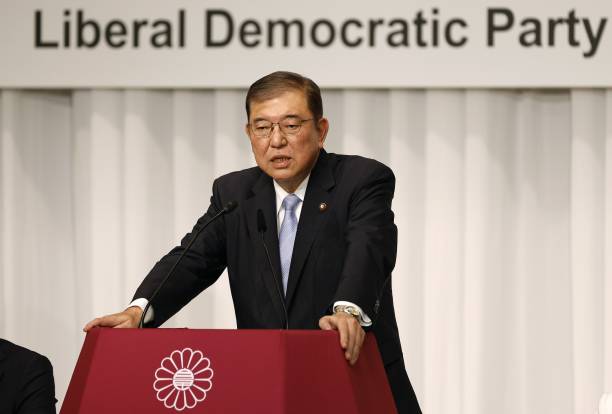In the recent elections, Japan’s ruling Liberal Democratic Party (LDP), led by Prime Minister Shigeru Ishiba, has failed to secure a majority in the lower house of parliament. Exit polls indicate a significant rise for the main opposition, the centrist Constitutional Democratic Party of Japan, led by Yoshihiko Noda, which could increase its seats from 98 to as many as 191.
This setback complicates Ishiba’s position, making it more challenging to push forward his party’s policies. He may need to consider forming a coalition with another party to navigate these difficulties. During a press briefing, Ishiba acknowledged his predicament, stating, “I’m in the party where I cannot ignore those who don’t agree with what I say. In trying to manage these dynamics, I feel I’ve lost my sense of self.”
While the LDP’s failure to achieve a majority does not automatically trigger a government change, it poses a significant barrier to Ishiba’s legislative plans. He has also faced backlash for altering his stance since taking office.
In response to criticisms, Ishiba explained that his shifts were a reflection of concerns raised by party members who disagreed with him. He assumed the prime ministership on October 1, succeeding Fumio Kishida, who resigned amid public outrage over alleged misconduct involving LDP lawmakers.
Ishiba called for the elections to strengthen his mandate after Kishida’s administration struggled to address widespread dissatisfaction with the LDP. He noted that the LDP is open to collaborating with opposition parties if it aligns with public expectations.
